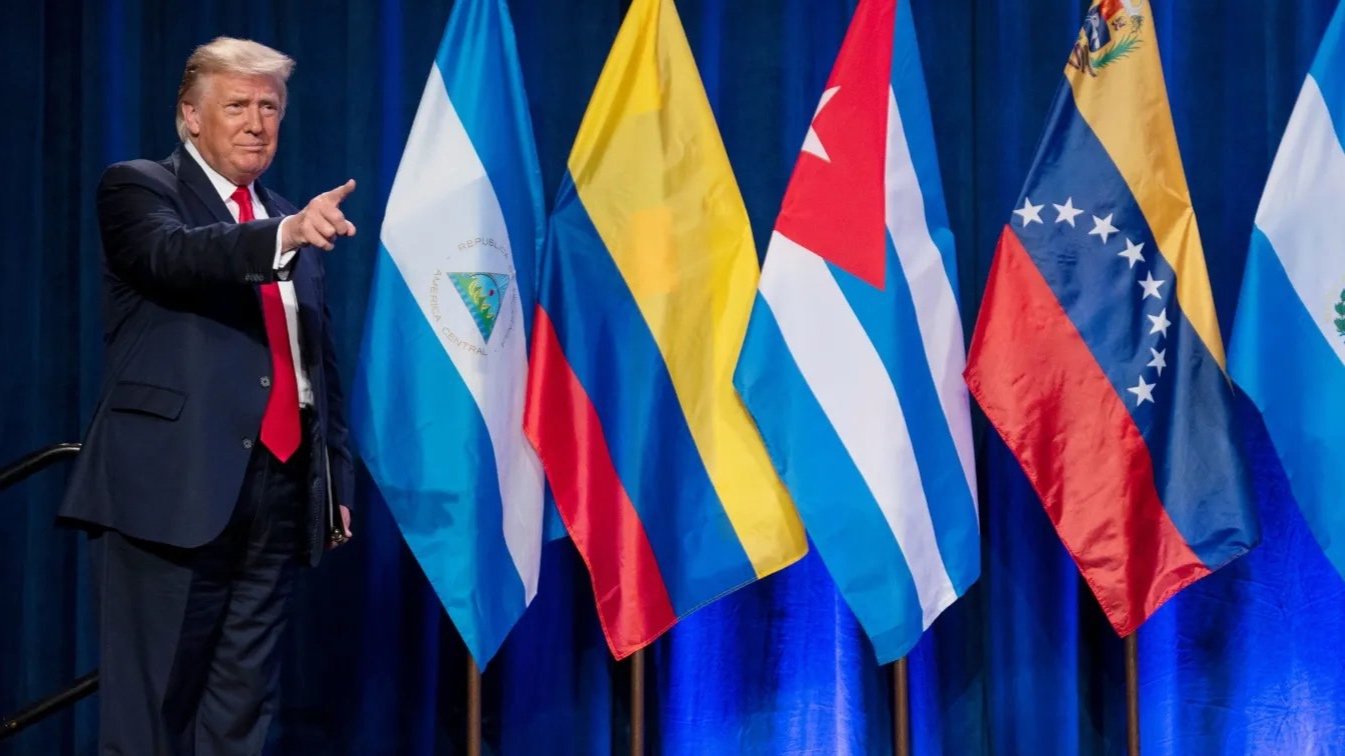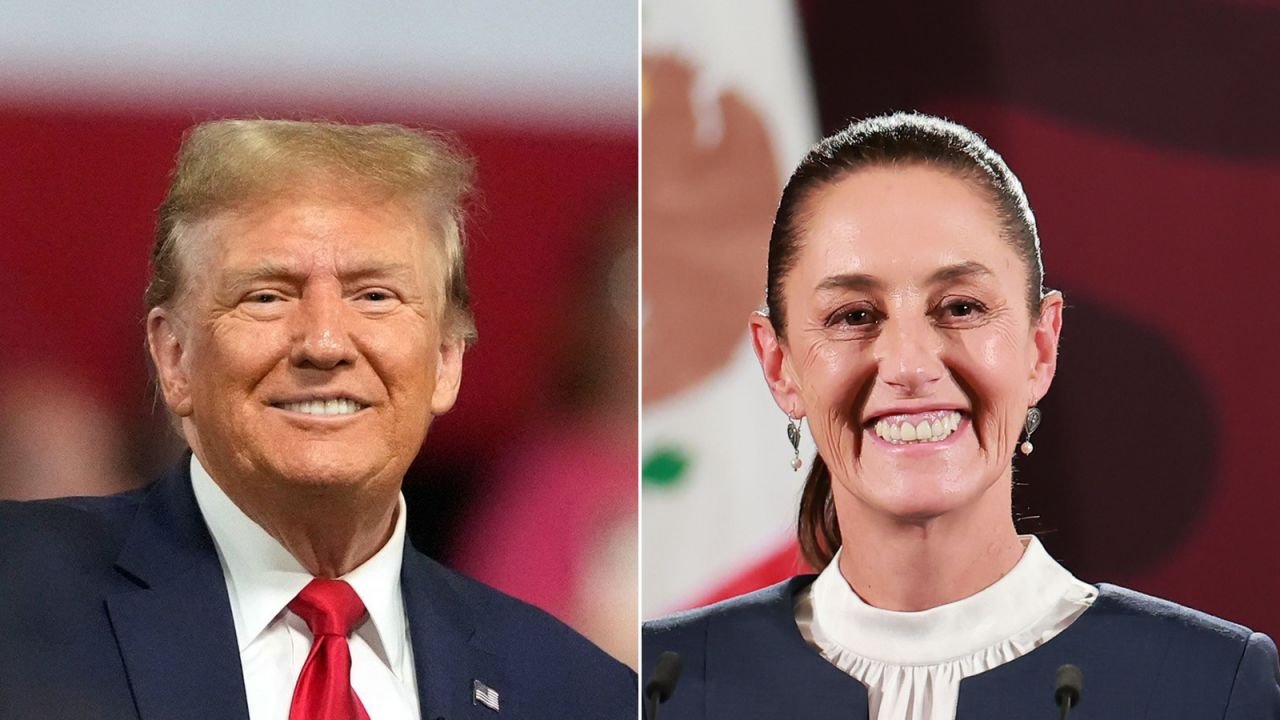Our Insights
Featured Posts Selected by Our Experts
Explore all of our Insights, Interviews, Commentary, and More
Media Type

Talking Points | Driving Digital Transformation: Saudi Arabia's Giant LEAP
Saudi Arabia’s Vision 2030 is a comprehensive strategy to diversify its economy and solidify its position as a global technology and innovation hub. A cornerstone of this vision is the development of a world-class digital infrastructure to support both public and private sector transformation. Key investments are being made in AI, cloud computing, smart cities, and cybersecurity.

Expert Take | What Trump 2.0 Means for Latin America
Latin America is closely monitoring President Trump’s second term, marked by priorities that directly impact the region, including immigration, drug cartels, and the influence of China. These issues resonate due to record-high migration at the U.S.-Mexico border, increasing fentanyl-related deaths (over 70,000 last year), cartel-driven violence, and China’s growing role as a trade partner and investor.

Expert Take | What Trump 2.0 Means for China-Latin America Relations
Once a niche topic, the Latin America-U.S.-China (LUC) relationship is set to gain mainstream policy attention under Trump 2.0. Washington will be the primary driver of this shift, with continued bipartisan support to counter China and an incoming senior foreign policy team unusually well-versed in Latin America.

Expert Take | What Trump 2.0 Means for Mexico
While January 20th marked the official beginning of Trump’s second administration, Mexico has long been preparing for his presidency, particularly in economic matters. This challenge is not new for Mexico. In fact, the country not only survived Trump’s first term, but actually thrived.

Talking Points | Foundations for the Future: Saudi Arabia’s Infrastructure Leap
Saudi Arabia is accelerating its infrastructure transformation with an ambitious vision for the future. In 2024, the Kingdom allocated $17.3 billion to infrastructure development, with spending projected to rise to $21.3 billion by 2025. Central to this transformation are monumental projects that aim to redefine urban development, transportation, and sustainability.

Talking Points | Protecting Heritage through Partnership: Why U.S. Antiquities CPAs are Essential for At-Risk Nations
In a world where cultural artifacts can be plundered from archaeological sites, whisked away across borders, and then laundered onto the black market within just days or even hours, nations need robust, collaborative strategies to fight back. The United States has taken a step toward addressing this problem by signing cultural property agreements (CPAs) with countries threatened by the illicit antiquities trade.

Talking Points | Syria’s New Cabinet: A Free-Market Vision Amid Uncertainty
Syria’s interim government, formed after the collapse of the Assad regime, has announced plans to transition to a free-market economy. Led by Prime Minister Mohammed al-Bashir and backed by Hayat Tahrir al-Sham (HTS), the administration is dismantling decades of state-controlled trade practices.

The Power of the Creative Economy: A Pathway to Growth and Global Influence
As the global economy evolves and industries become increasingly knowledge-driven, nations are looking toward new sources of growth beyond traditional sectors. One of the most promising and fastest growing of these is the creative economy—a diverse sector encompassing arts, media, design, fashion, technology, and cultural industries. According to UNESCO, the creative and cultural sectors contribute $4.3 trillion to global GDP, and generate 50 million jobs worldwide, almost half of which are held by women. These industries are expected to account for 10% of global GDP by 2030.

Talking Points | The Overnight Collapse of the Assad Regime: A New Era for Syria and the Middle East
The unexpected and rapid collapse of Bashar al-Assad’s regime has reshaped the Middle East overnight. Rebels, led by Hayat Tahrir al-Sham (HTS), advanced from their stronghold in Idlib, capturing Aleppo, Hama, and Homs before isolating Damascus. Within 12 days, Syria’s capital fell, signaling the end of over five decades of Assad family rule. Bashar al-Assad, who had been in power since 2000, reportedly fled Damascus early Sunday, leaving a power vacuum that is both historic and precarious.

China Economic Stimulus Tracker
China is currently confronting economic challenges that have tempered its rapid growth, including substantial local government debt, a struggling real estate sector, and subdued domestic consumption. In response, the Chinese government initiated a series of stimulus measures in September 2024 to rejuvenate growth and bolster confidence in the economy.






